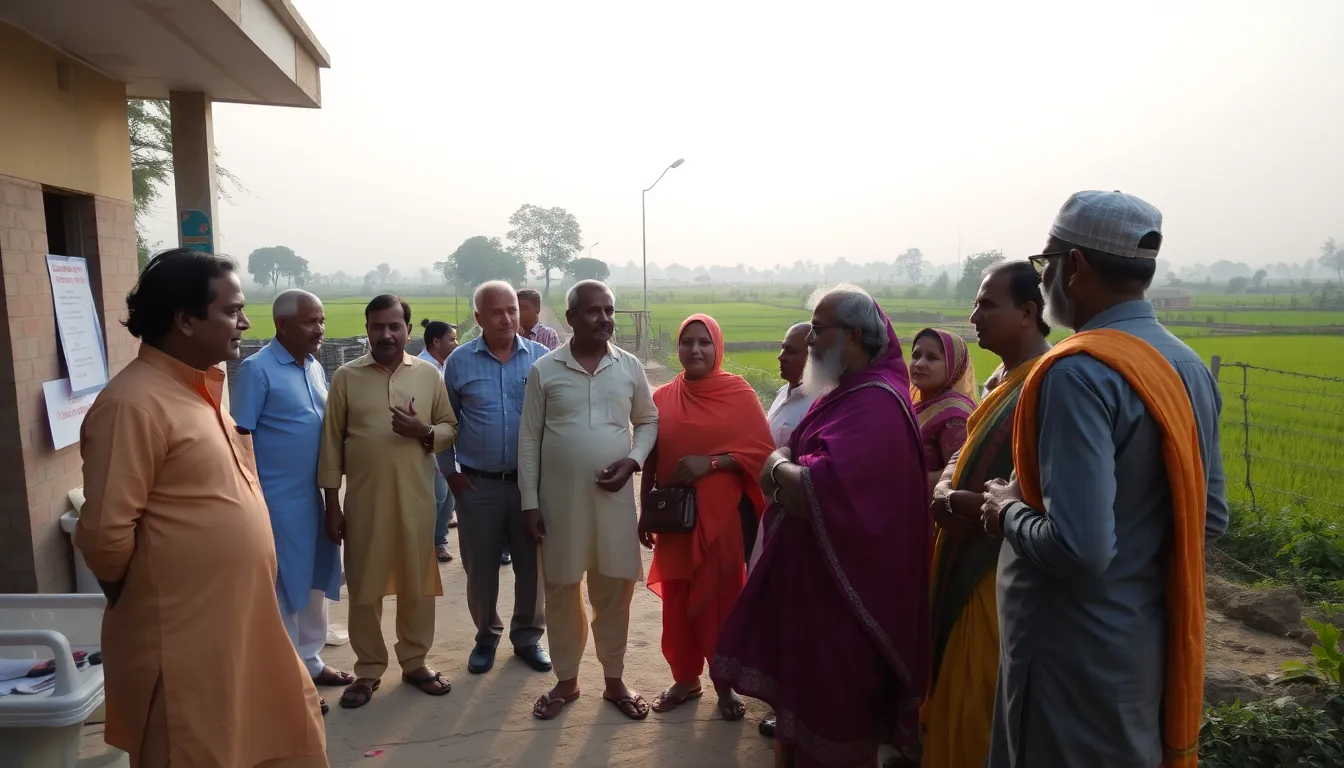In Gujarat’s Amod taluka, the election for 21 gram panchayats concluded with significant developments. On the last day for form withdrawals, it became clear that three gram panchayats – Asanera, Sudi, and Vadiya – will face no competition in the general elections. This means they will be elected unopposed.
The election for the Mchasara gram panchayat will still take place. Here, the sarpanch election will be held where wards 1, 2, 5, 6, 7, and 8 are uncontested. However, wards 3 and 4 will see elections.
For the Bodka gram panchayat, the sarpanch election will proceed as well. In this case, wards 2, 3, 5, 6, 7, and 8 have no challengers, while wards 1 and 4 will have elections.
The Midterm elections for the Sarbhan gram panchayat will also take place. In this instance, wards 1 to 7 are uncontested, but elections will be held for wards 8, 9, and 10.
Additionally, the Teloda gram panchayat will conduct midterm elections for the sarpanch. Here, wards 1, 3, 5, and 8 have no challengers, while wards 2, 4, 6, and 7 will hold elections. Furthermore, both wards 4 and 9 of the Achhod panchayat will hold by-elections as they are uncontested.
The Ikhar panchayat’s ward 4 is uncontested, as is ward 7 of the Ninma panchayat and ward 6 of the Chaklada panchayat. Meanwhile, ward 8 of Chaklada did not receive any forms.
The Itola gram panchayat will have its sarpanch election as well, although forms were not submitted for wards 1 and 8. In the Matar panchayat, ward 7 is uncontested, while ward 6 of the Ranipura panchayat is also uncontested, and ward 2 of the Kolvana panchayat is without competition.
This election cycle is significant for the local governance structure in Gujarat, showcasing the democratic process at the grassroots level. The lack of competition in several wards indicates a strong community agreement or support for the candidates in these areas.
The elections will be closely monitored, and the results are expected to have an impact on local development initiatives. As panchayats play a crucial role in the implementation of government schemes and projects, the outcomes of these elections will influence the future of the communities involved.
Overall, the panchayat elections in Amod taluka reflect the ongoing political dynamics in Gujarat, where local governance continues to adapt to the needs and aspirations of its residents. The future of these gram panchayats will depend on the elected representatives’ ability to address local issues and enhance development in their respective areas.


Leave a Reply